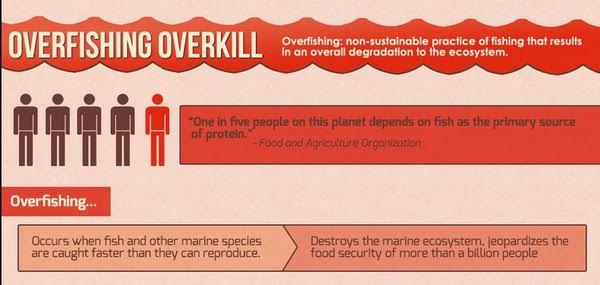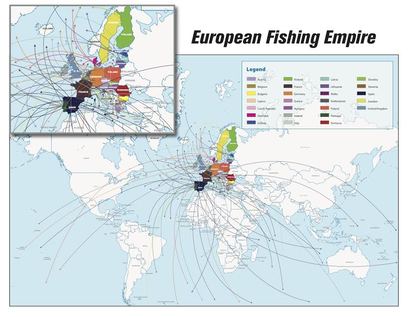 “There’s been no effective movement on fisheries management in the Mediterranean in the last decade”, says report author Nicholas Dulvy, a marine ecologist at Simon Fraser University in Burnaby, Canada, they said. The European Commission funded the report, and it is the first complete evaluation of the extinction risk of marine fish in the region. The report covered species native to the Mediterranean Sea, Black Sea, Baltic Sea, North Sea, and the European Atlantic Ocean region. While conservation methods have been successful for some species, others are endangered such as the Atlantic halibut, Atlantic salmon and turbot—numbering 90 species in all at risk. Japanese fishing in European waters has long history In 1986 the European Commission proposed limits on Japanese fishing in the waters off Madeira. The number of Japanese fishing vessels was reduced from 25 to 15 and the quantities of blue fin tuna was reduced from 240 tons to 120 tons. Reports in June 2015 show restrictions are effective. The Blue fin tuna in the Mediterranean and the Eastern Atlantic for the first time since a 2006 recovery plan went into effect show an increase in EU allowances to fish, which is due to the recovery of the stock by 20 percent. Catch limits are successful in establishing sustainable ocean fish stocks Unlike the Blue fin tuna, many species do not have catch limits like Mediterranean blue sharks, which is among the most exploited species in European waters. Spain is reported as the biggest exporter of shark fins and meat and a major player in the global fin trade, according to the report in Science Magazine. Implementation of fishing laws and restrictions slow to take effect The new Common Fisheries Policy (CFP) taking effect in January 2014 mandated the end of overfishing by requiring catch limits on all commercial species by 2020. In the foreword to the IUCN report, European Commission Director Pia Bucella writes that its findings will be “crucial” for informing the CFP and other marine policies. Some believe the 2020 target date is too slow and contributes to uncertainty in the industry and among conservationists. Greenhouse gas emission rates impact ocean fishing Oceans need an immediate and substantial reduction of anthropogenic greenhouse gas emissions. If that doesn't happen, there could be far-reaching and largely irreversible impacts on marine ecosystems, reported by Science Daily. A study published this month in the journal Science, the research team from the Ocean 2015 initiative assesses the latest findings on the risks that climate change poses for oceans and demonstrates how fundamentally marine ecosystems are likely to change if human beings continue to produce just as much greenhouse gases as before according to the report. Carbon dioxide concentration in the atmosphere has risen from 278 to 400 ppm (parts per million) -- a 40 percent increase that has produced massive changes in the oceans. "To date, the oceans have essentially been the planet's refrigerator and carbon dioxide storage locker. For instance, since the 1970s they've absorbed roughly 93 percent of the additional heat produced by the greenhouse effect, greatly helping to slow the warming of our planet," explains Prof Hans-Otto Pörtner, co-author of the new Ocean 2015 study and a researcher at the Alfred Wegener Institute, Helmholtz Centre for Polar and Marine Research, they said in the report. The study offers four key takeaway messages for the negotiators and decision-makers: 1. The oceans greatly influence the climate system and provide important services for humans. 2. The impacts of anthropogenic climate change on key marine and coastal species can already be seen today. Many of these plant and animal species will face significant risks in the decades to come, even if we succeed in capping carbon dioxide emissions. 3. We urgently need an immediate and substantial reduction of carbon dioxide emissions in order to avoid widespread and above all irrevocable harm to ocean ecosystems and the services they provide. 4. Fourth, as atmospheric CO2 increases, the available protection, adaptation and repair options for the ocean become fewer and less effective, and with them the odds that marine life forms can successfully adapt to these rapid changes. Efforts to save European ecosystems and fish stocks by restrictions and enforcement of mechanisms to ensure sustainable numbers in the future will be complicated and even jeopardized if carbon dioxide concentrations in the atmosphere continue to rise. Multidiscipline approaches to ocean conservation focusing on both fishing restrictions and reduction of greenhouse emissions will be needed to ensure preservation of fishing stocks. Resources Science Europe Europe press release http://ec.europa.eu/newsroom/mare/itemdetail.cfm?item_id=23400&subweb=343&lang=en http://www.sciencedaily.com/releases/2015/07/150703135248.htm
3 Comments
Hannah
7/7/2015 11:31:53 pm
Thank you, Dava, for your report/
Reply
eileen
8/7/2015 03:00:39 am
Thanks for an interesting report close to my heart
Reply
17/3/2018 04:35:29 pm
The joys of saltwater fishing rods! Imagine it. You are standing on the deck of one the nicest charter boats one could ever imagine. The sun is shining, you are surrounded by good friends, and you are realizing that you are as far away from work, worry, and a mundane existence as you can possible get. Suddenly something catches your eye. It's a tug, a tug at your fishing line. You step over t your stand, grab your rod, and begin to reel in a fish bigger than you have ever seen in your life. Your heart begins beating, your palms sweating, as you start to think about the stories you will tell, how good it will feel to reel this guy in, and how good he will look above your mantle. Suddenly the fish leaps out of the water and you see just how glorious this creature is, and then, then you hear it, the sound that you will never forget the sound of the snap.
Reply
Leave a Reply. |
Dava Castillo
is retired and lives in Clearlake, California. She has three grown
children and one grandson and a Bachelor’s degree in Health Services
Administration from St. Mary’s College in Moraga California. On the
home front Dava enjoys time with her family, reading, gardening, cooking
and sewing. Archives
November 2015
|


